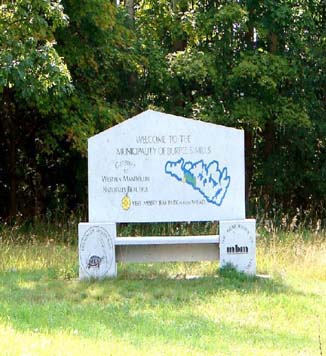Let’s be heard on broadband for the North
The problems with Internet connectivity in Northern Ontario are well documented and it is ironic that this revolutionary technology, which could level the geographic playing field, is so difficult to provide in rural and remote areas. From simple quality of life issues to the best opportunity for our businesses, there is no end of compelling reasons to expand high-speed broadband throughout the North.
While some parts of Algoma-Manitoulin-Kapuskasing are well served with high-speed options, the coverage is uneven and by no means complete. The good news is that there is an opportunity, until the end of this month, for northerners to share their views on the subject with the CRTC.
In addition to that, there are projects that will increase high speed connectivity in the North that are on hold due to questions about whether the new government will honour programs announced in the lead up to the election. To that end, I have been in contact with Blue Sky Economic Growth Corporation who detailed the latest hitch holding up their projects-one of which is scheduled to expand high-speed access across the North Shore of Lake Huron. They tell me at least five broadband projects for the North are being held up because the Liberal government has instructed FedNor not to release money until they decide the fate of the Connecting Canadians program which is a Conservative government creation.
With bigger issues grabbing headlines and government attention, it is impossible to know whether Connecting Canadians is still a viable program, or if the government has other plans. The problem is that every day we wait is another day that our region is held back from reaching its digital potential. The importance of connectivity is clear, but the benefits of high-speed may not be as obvious. They go well past good-download speed. A quick and consistent connection is the back-bone of digital commerce. If we are going to beef up our northern economy, it will be facilitated by improving our connectivity.
Clearly there is a role for the government to play, especially with those projects that are on hold, but there are things you can do as well. The first is to offer feedback for the CRTC’S basic telecommunications services review. The survey needs people from our region to participate so that decision makers will be aware of our situation. You can do that by going to http://www.crtc.gc.ca/eng/internet/ and filling out the questionnaire which can be found by using the button on the bottom of the page. (For this option you have until February 29 of this year).
In addition to that Blue Sky has developed a public website, www.connectednorth.ca, where northerners can go to see what service is available in their area, who delivers it, take speed tests, and provide information regarding broadband technology. Blue Sky tells me that using this “crowd sourcing” format allows them to see where service is needed and can also help them show Internet service providers where they could do a better job within already established systems.
Both options will allow us to make our own case for better connectivity. It will supply the kind of data that can help the government make our region a priority and hopefully, free up the money announced in the Connecting Canadians program.




